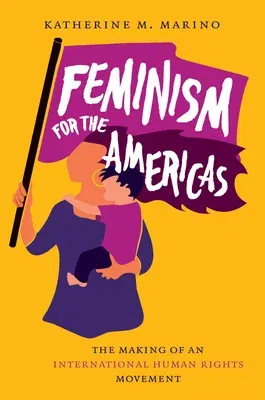This book chronicles the dawn of the global movement for women's rights
in the first decades of the twentieth century. The founding mothers of
this movement were not based primarily in the United States, however, or
in Europe. Instead, Katherine M. Marino introduces readers to a cast of
remarkable Latin American and Caribbean women whose deep friendships and
intense rivalries forged global feminism out of an era of imperialism,
racism, and fascism. Six dynamic activists form the heart of this story:
from Brazil, Bertha Lutz; from Cuba, Ofelia Domingez Navarro; from
Uruguay, Paulina Luisi; from Panama, Clara Gonzalez; from Chile, Marta
Vergara; and from the United States, Doris Stevens. This Pan-American
network drove a transnational movement that advocated women's suffrage,
equal pay for equal work, maternity rights, and broader
self-determination. Their painstaking efforts led to the enshrinement of
women's rights in the United Nations Charter and the development of a
framework for international human rights. But their work also revealed
deep divides, with Latin American activists overcoming U.S. presumptions
to feminist superiority. As Marino shows, these early fractures continue
to influence divisions among today's activists along class, racial, and
national lines.
Marino's multinational and multilingual research yields a new narrative
for the creation of global feminism. The leading women introduced here
were forerunners in understanding the power relations at the heart of
international affairs. Their drive to enshrine fundamental rights for
women, children, and all people of the world stands as a testament to
what can be accomplished when global thinking meets local action.


